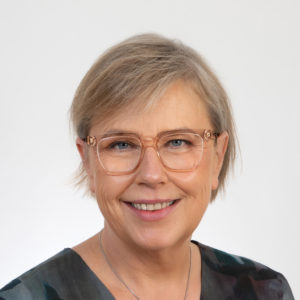
Bryndís SNÆBJÖRNSDÓTTIR Vice-President of Inclusion Europe wrote an article about how does a more inclusive Europe look like, how can we achieve a more inclusive Europe and how do civil society organisations contribute to a more inclusive Europe.
The article was published in the December issue of the Diversity Europe Newsletter of the Diversity Europe Group of the European Economic and Social Committee.
Deinstitutionalisation is the key to a more inclusive Europe.
The countries in Europe that still operate institutions for people with disabilities must put forward an action plan with clear objectives, timelines and resource allocation stating when and how these institutions will be closed. Furthermore, there should be a strict requirement that the community apartments replacing these institutions are small and that there are only a limited number in the same location. These new community apartments must recognise the rights of people with disabilities to lead an independent life, with the support needed to be in control of their own lives and participate in the community. For people with disabilities, being included in the community on an equal basis with others is a human rights issue, not a welfare concern. All people with disabilities have the right to take part in all aspects of society such as education, employment, participation in cultural life and leisure activities. This can only be achieved through changes that secure appropriate support based on respect for their human rights.
A more inclusive Europe calls for reasonable accommodation and effective support for people with disabilities.
Children with disabilities must have the right to attend their neighbourhood school with appropriate assistance, receive the support needed to be included in their local communities and not be sent to institutions or segregated facilities. Adults with disabilities should be supported to take part in the open labour market and not be forced into placements in segregated workshops. Their right to live in the community and to choose where and with whom they live must be respected. Institutions and group homes should be a thing of the past.
When European countries plan their infrastructures, law and policies, they must collaborate with organisations of people with disabilities to make sure they meet the requirements of the UN Convention on the Rights of Persons with Disabilities (CRPD2 ).
A solid knowledge of the CRPD at each level of society is the basis for implementing it successfully and fulfilling its requirements for housing, transportation, information, education, employment, health, immigration and in all other areas of society and, indeed, making sure that all generic facilities and services are available and accessible to people with disabilities on an equal basis to others. People with disabilities and their organisations have extensive experience and expertise when it comes to disability matters. It is essential that authorities across Europe harness this valuable resource to create a more inclusive Europe.
Bryndís, Vice-President of Inclusion Europe wrote about deinstitutionalisation, reasonable accommodation and
effective support for people with disabilities. https://t.co/0V0WwxYnZ8— Inclusion Europe (@InclusionEurope) December 8, 2021





